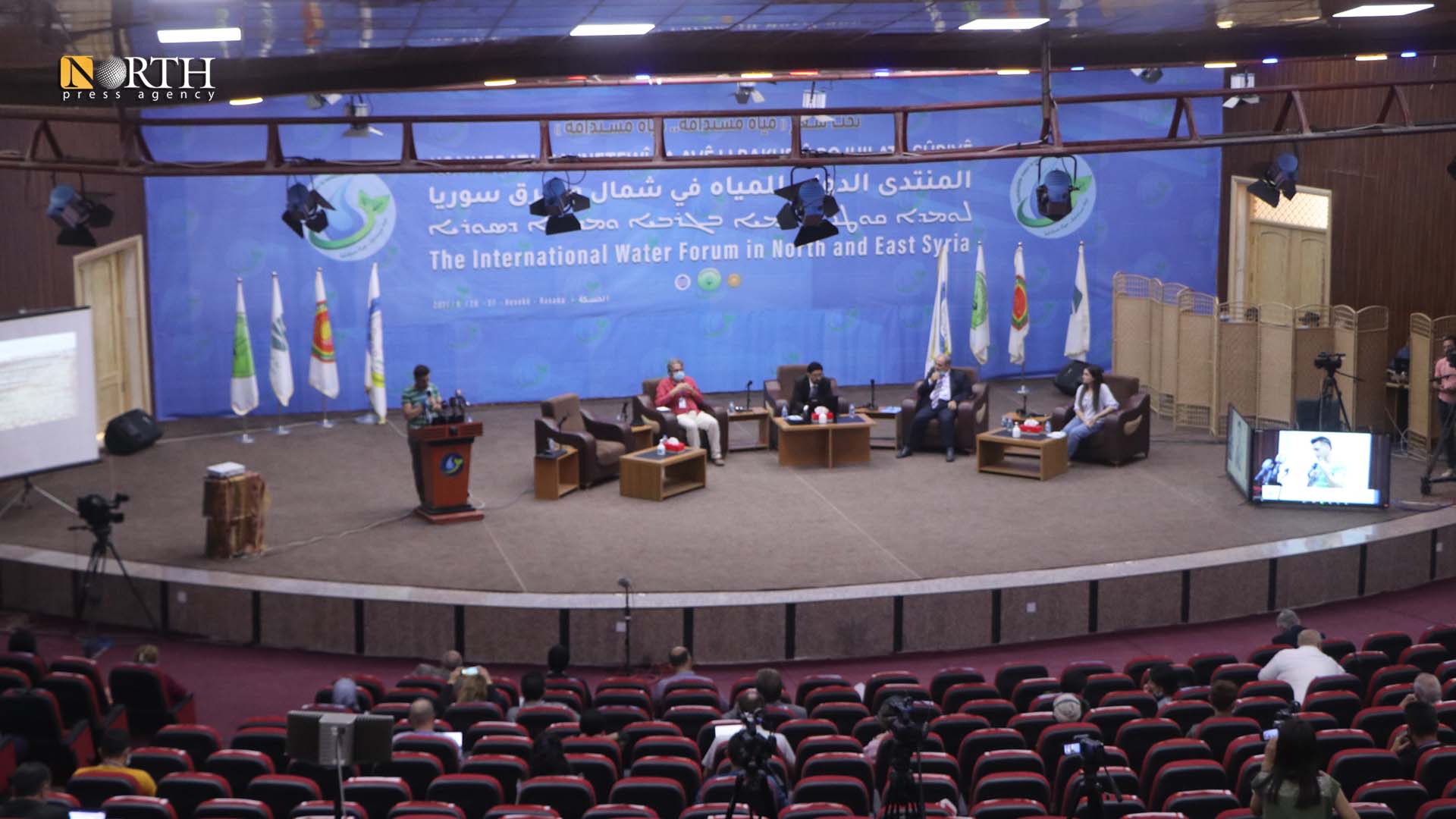Water forum in Syria’s Hasakah concludes with a set of recommendations
HASAKAH, Syria (North Press) – On Tuesday evening, the activities of the International Water Forum in North and East Syria concluded in the city of Hasakah, northeast Syria, with recommendations and decisions to be implemented and managed by a committee emanating from the forum.
The forum, whose activities started yesterday on Monday, and was held under the auspices of the Local Administration and Environment Board in the Jazira region, with the participation of Rojava University and the Euphrates Center for Studies, was attended by foreign delegations, officials of the Autonomous Administration and those in charge of international, local and human rights organizations.
During five sessions, academics, experts and technicians lectured where they focused on the general international charters and agreements on rivers, which regulate the shares of the riparian countries of the shared waters, in addition to discussing bilateral and tripartite agreements and covenants among, Syria, Iraq and Turkey.
In two days, the participants discussed the political dimensions of the water crisis in the region, especially Turkey’s practices in using water as a political weapon against the Syrians, the economic dimension of the water crisis, the role of water pollutants, their negative impact on economic growth, the impact of the water deficit on agriculture in the region, and the role of water security in achieving sustainable development.
The forum concluded with twenty recommendations read by Abdul-Ilah Mustafa, member of the Preparatory Committee, most notably “the denunciation of the Turkish state’s policies in diverting water as a political weapon against the population, and working to submit a general and comprehensive report to the bodies and organizations of the UN, the EU, and international human rights organizations.”
The final statement called on “the international community to pressure the Turkish state to reverse its policy and breach of laws (…) and to assume its humanitarian duty in the region regarding the effects of water cuts and scarcity and their impact on communities and refugee camps,” in addition to filing a lawsuit against Turkey for “violating public international law.”
The statement guided the Autonomous Administration “to solve water problems through dialogue and cooperation with the relevant authorities, such as Iraq and Syria, and international organizations, as it is a humanitarian issue, and to contribute to projects that support water sources, secure sustainable sources for them, and build small and medium dams on small rivers.”
Earlier today, Doctors Without Borders Organization (MSF) warned that the limited access to clean water in northern Syria during the past few months has reached dangerous levels.
The forum concluded by distributing souvenir shields to a group of forum guests.

